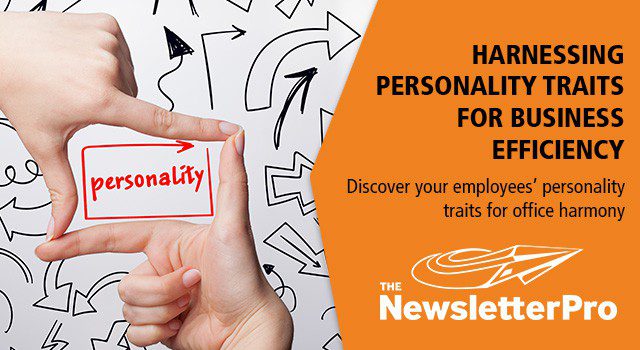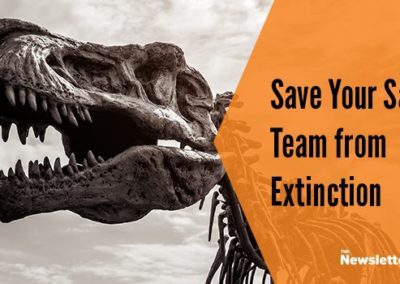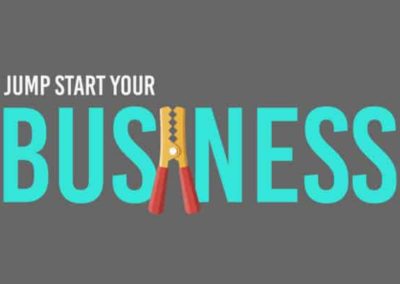“A chain is only as strong as its weakest link.”
You’ve likely heard this phrase in leadership training, at morning meetings designed to “invigorate” participants to have a productive week, or from your physical education teacher as you slogged your way through a group activity. Unfortunately, this phrase has been overused so much that it is now nearly ironic, but it still packs a powerful sentiment.

As a business leader, your chain is your company. Each link — or person — you add either makes you stronger or weaker. Your employees are the face of your company, interacting with your consumers — those who actually use the “chain” — on a daily basis. As a result, your hiring and training processes are vital to your company’s success.
However, if you’re searching for the perfect person to fill a vacant role, you will be disappointed in every person you find. If we boil the chain metaphor down to our own personal lives, we all have weak links. We all have personality traits that can make us difficult to work with, manage, or even be around.
It’s just human nature to be less than perfect, but hiring and creating a productive company culture is not an impossible feat. In fact, when you have the necessary tools to understand and manage your employee’s personalities, you can create a cohesive unit. Blending everyone’s strengths with their weaknesses will forge the ultimate chain.
That’s the idea behind Carol Tuttle’s study, “It’s Just My Nature!”
Discovering Your Type
 Once you understand the personality traits that comprise your team, you can effectively train them to work more harmoniously. In “It’s Just My Nature,” Carol Tuttle outlines a simple and accurate way to do this: energy profiling.
Once you understand the personality traits that comprise your team, you can effectively train them to work more harmoniously. In “It’s Just My Nature,” Carol Tuttle outlines a simple and accurate way to do this: energy profiling.
Now, before you wave off this technique as some hippy-dippy, rose-colored glasses nonsense, consider Tuttle’s reasoning. Tuttle theorizes that, like the four essential elements that create life — nitrogen, oxygen, hydrogen, and carbon — humans typically have strengths that fall into four categories. As it just so happens, those distinctions have similar traits to the very types of elements that comprise our DNA.
For many, one type stands out the most as their essential energy profile, the personality trait they ascribe to the most. Others will discover that their traits fit into a few profiles.
Regardless of where you land on the scale, understanding what each profile means can go a long way in helping you identify the weak links in your own personality and among your team. That’s right — don’t forget to consider how your own personality traits play a role in the chain.
Let’s start by identifying the energy types.
The 4 Energy Types
 Type 1: Everyone knows this person. And if you don’t know this person, then you are this person! This type is animated, excited, fun, and loud. They are often the center of attention, not because they seek it, but because they shine in it. They are “the life of the party,” and you can frequently tell who they are just by hearing others talk about them.
Type 1: Everyone knows this person. And if you don’t know this person, then you are this person! This type is animated, excited, fun, and loud. They are often the center of attention, not because they seek it, but because they shine in it. They are “the life of the party,” and you can frequently tell who they are just by hearing others talk about them.
Type 2: As a perfect counter to Type 1, Type 2s are quiet and calm. They have a gift for planning, but not because they need to. They are just naturally inclined to keep order, mull things over, and pay attention to what is being said. They listen more than they speak, but they are often your wisest employee.
Type 3: This employee is all about the action. They like results. They want it done now, and they will work hard to create lasting results. You won’t have to worry about productivity with this employee. They love action and are often the first to react to changes and needs. This can be positive or it can be a temperament that needs taming.
Type 4: This is where you will find your analyst. They are critical with every step they take, thoughtful in their approach, and not quick to judge. You can rely on them for nearly anything as you know it will be done right, even if it takes longer than a Type 3 might take.
You Know Your Type — Use It!
 Once you discover your energy type and the personality traits that comprise your team, you can begin to implement changes and processes. These will maximize the benefits of each type and, ultimately, your business.
Once you discover your energy type and the personality traits that comprise your team, you can begin to implement changes and processes. These will maximize the benefits of each type and, ultimately, your business.
For example, if you have many Type 2s in your office, your business would benefit from an environment that emphasizes emotions and structure. A strong sense of family and culture will help your team feel more connected with your brand and company. The same cannot be said for a company that has many Type 3 personalities. Instead, they will thrive in a fast-paced, action-heavy environment. They want results, and they want them now!
You’re not likely to find a business with just one type of employee. But the beauty of energy profiling is that once you understand what dominant personality traits make up members of your team, you can begin to change the way you communicate and nurture the company culture. You won’t have to deal with office battles. Your coworkers will begin to understand your nuances and needs, too.
With understanding comes greater connection, and when it comes to creating a durable chain, a stronger connection goes a long way.
P.S. Tuttle’s theories aren’t the only personality traits tests that can help your company and employees understand one another. Check out Myers-Briggs, the Lüscher color test, and others to find the test that best fits your needs.






